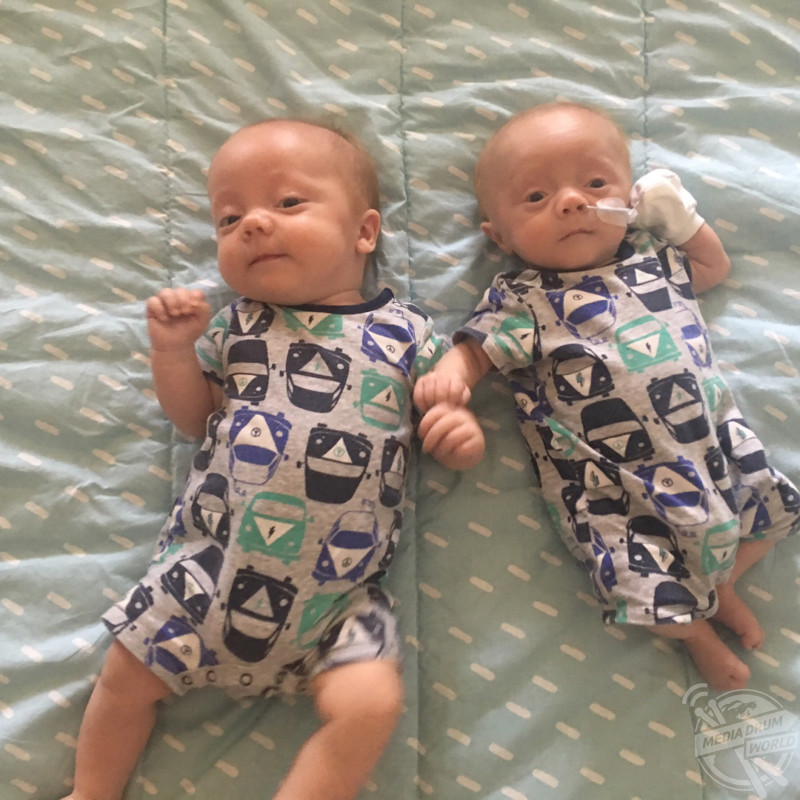By Alyce Collins
THESE TWINS had a rare syndrome which meant ONLY ONE was growing in the womb, leading doctors to suggest SACRIFICING the smaller twin, but now the strong toddlers are thriving and misbehaving.
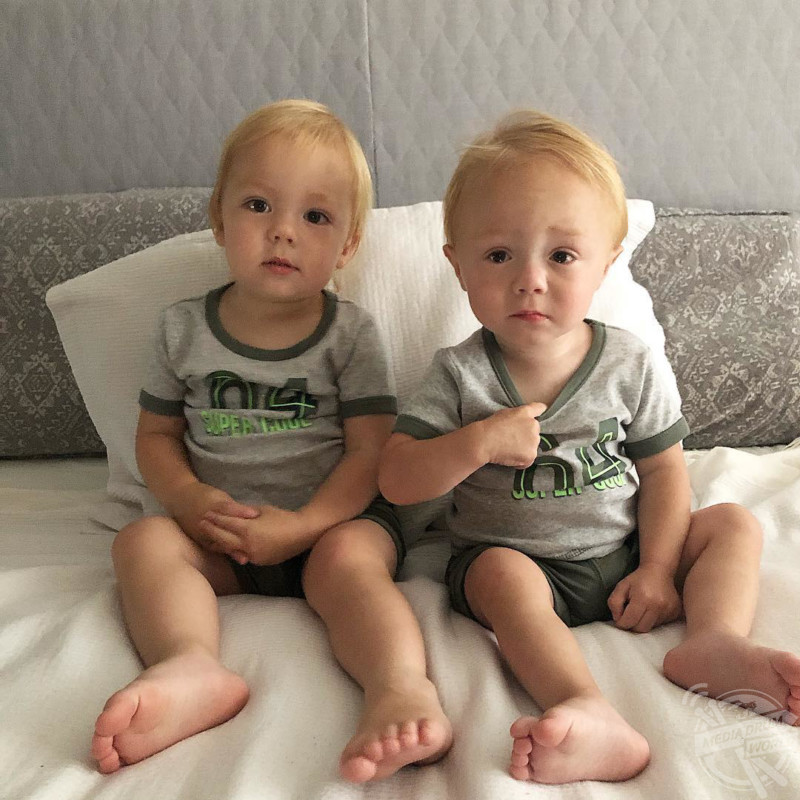
Parents Gareth Norman (31) and Renee Baker (36) from Cardiff, Wales, UK and Adelaide, Australia respectively were thrilled when they found out they were expecting twins in early 2017, to add to their family of five, however at just seven weeks scans revealed a notable size difference between the two embryos.
As the couple lived in Darwin, their case was referred to Brisbane for more specialist hospital care. The peculiar situation had to be discussed by a board of specialists, and by the time Renee reached 16 weeks it was suggested that the twins could have twin-twin transfusion syndrome (TTTS).
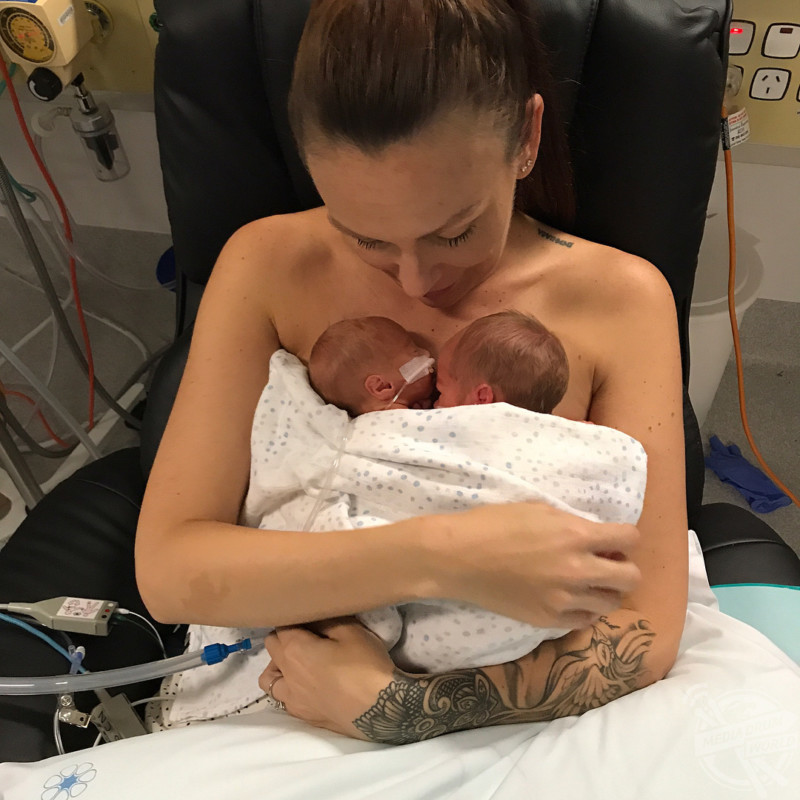
TTTS is a rare condition in which monochorionic twins share the placenta, which can result in complications for one or both of the twins. One of the boys, Sonny, was falling behind on growth already, and doctors suggested that Gareth and Renee could sacrifice him for the sake of the healthier foetus, Kash, which they immediately ruled out.
Doctors hoped the twins could make it to 24 weeks so that Sonny would weigh at least 1lb at birth, but astonishingly Renee was able to carry them until 32 weeks. A team of 21 doctors and nurses delivered the boys via emergency c-section on June 2, 2017.
The placenta was sent for testing and this confirmed doctors’ fears that it had been TTTS. Sonny weighed just 2lb 3oz, and Kash was 4lb 4oz, yet Sonny managed to thrive once born as he was suddenly getting all the nutrients he had lacked for so long.
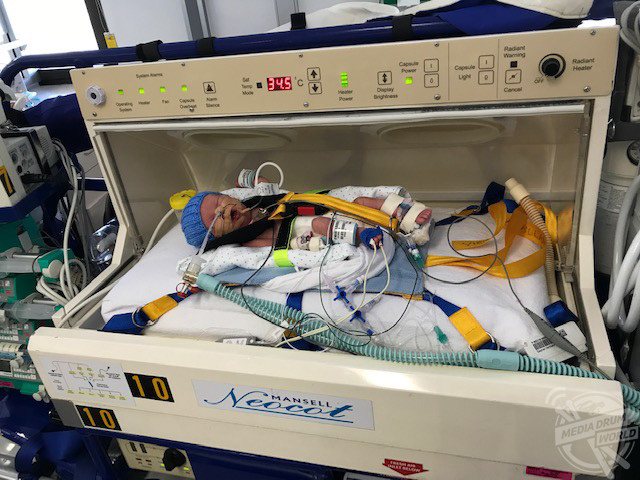
Just when they thought both boys were going to be okay, three weeks after the delivery, doctors found a hole in Sonny’s heart as it’s thought that TTTS stunted his heart’s development. For five nights, the twins were in separate hospitals and Renee had to take 45-minute Ubers in between to breastfeed the boys.
On June 27 Sonny was fitted with a pacemaker the size of a 50 pence piece, but miraculously when he came out of surgery his heart started working by itself.
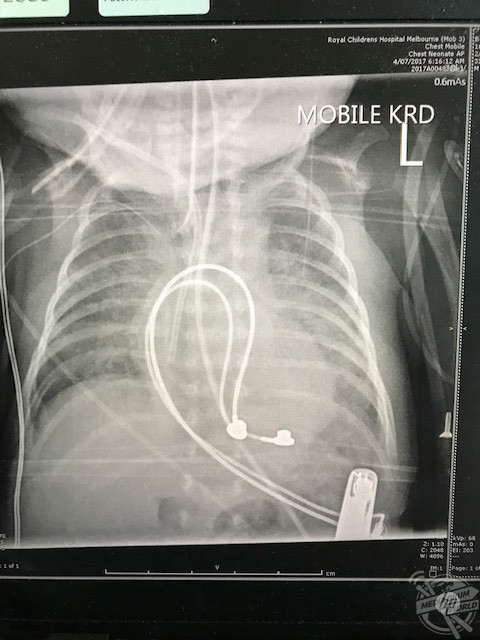
“At seven weeks there was already a large size difference between embryos,” said Gareth.
“We were referred to a hospital in Brisbane because Sonny was falling behind on growth. The placenta fed more to Kash than to Sonny so at 20 weeks our obstetrician said that we may have to sacrifice the small one to save Kash.
“We instantly told the doctor no way. We were going for the both and would do anything we needed to have the best chance of Sonny and Kash surviving.
“The challenge through the pregnancy was getting Sonny to a viable size and age. They knew he wouldn’t make it to full-term or near.
“First we hoped to make it to 24 weeks. We were told that healthy babies have a limited chance of surviving if they’re born before 24 weeks, let alone Sonny. After making it to 24 weeks, we were then looking to make it over 1lb, then we hoped for one and a half pounds, and so on. The chances of survival grew immensely with every ounce.
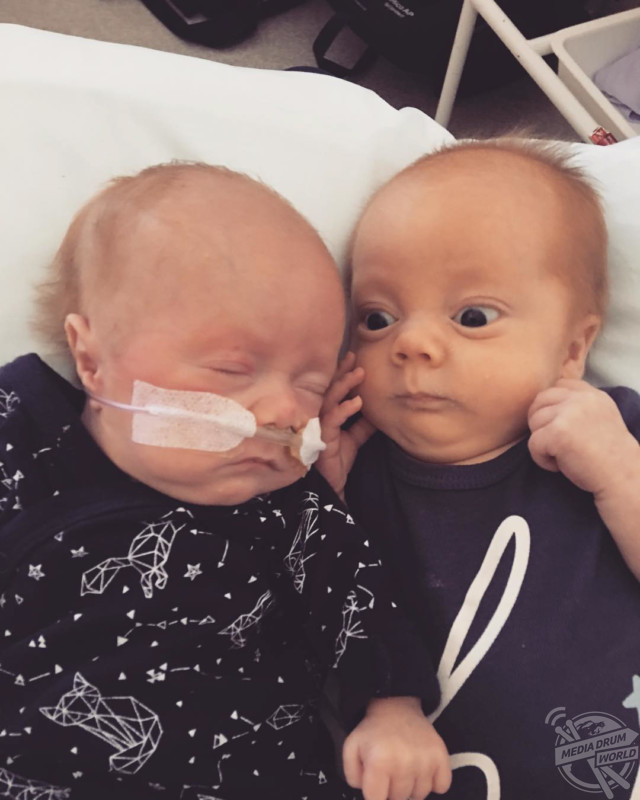
“They were born June 2017, Sonny at 8.09pm and Kash at 8.10pm. Sonny stopped breathing when he was first delivered, but the incredible doctors worked their magic and stabilised him before moving them up to NICU.
“On the ward, Sonny was doing better than Kash. Kash was happy on the inside so he struggled slightly, whereas Sonny suddenly started receiving all the nutrition he lacked inside, so thrived.
“It wasn’t until day 21 when they found that Sonny’s heart had a hole in it, and we were transferred down to Melbourne the following day.
“Sonny was in the Royal Children’s Hospital but the only space for Kash was in Monash Hospital, on the other side of the city.
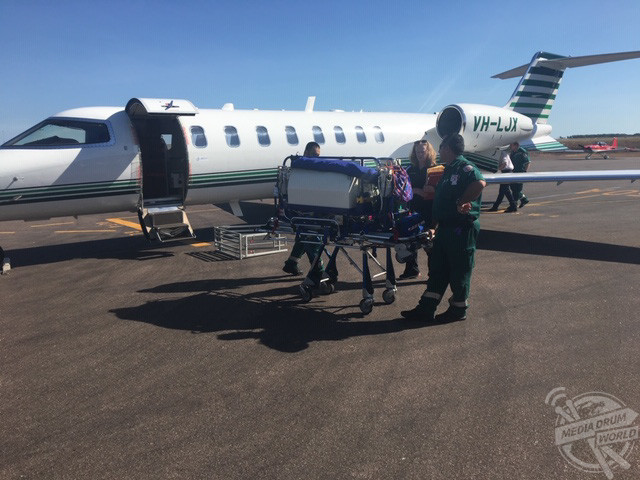
“It was horrible, we waited for Sonny’s doctors to do the rounds in the morning and then we’d quickly get in an Uber and see Kash for a few hours before having to head back for an update on Sonny.
“We were having to drop breast milk off for Kash, and a few times they called saying that there wasn’t going to be enough. There was lots of pressure on Renee.
“When the body is starved of nutrients, it prioritises where to send development, so it was sent to Sonny’s brain. There’s a strong chance TTTS caused his heart condition, but it can’t be proved directly.
“Sonny was supposed to weigh 6lb to have open heart surgery, but he struggled to gain weight. They decided to go ahead with the surgery anyway and he was one of the smallest babies to have heart surgery. His pacemaker is the smallest on the market, around the size of a 50p piece.”
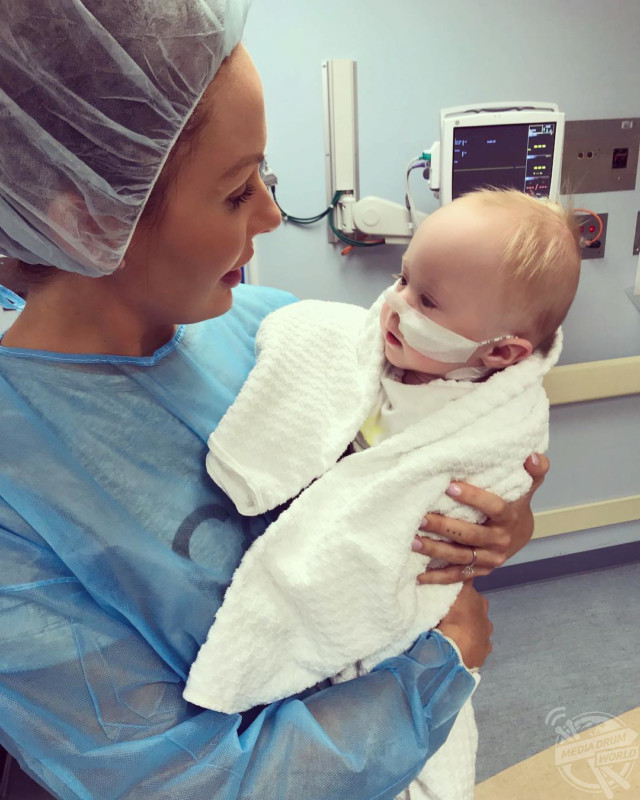
Kash was released from his hospital on June 29, 2017, which was much earlier than the hospital had planned, but staff were aware of the family’s predicament and wanted to ease the strain in any way possible.
Sonny was transferred back to Royal Darwin Hospital on July 25, and eventually allowed home on August 20, 2017, with a feeding tube through his nose.
“There were almost daily hospital visits when we returned home, with all the focus being on Sonny and him gaining weight,” said Gareth.
“The first year at home was very tough, there was a lot of pressure on trying to get Sonny to tolerate as much milk as possible through his feeding tube. He vomited most feeds and struggled to gain the weight the doctors wanted.
“We decided in November 2017 it would be best for Sonny if we lived in a bigger city with more specialists, so we moved the family to Adelaide.
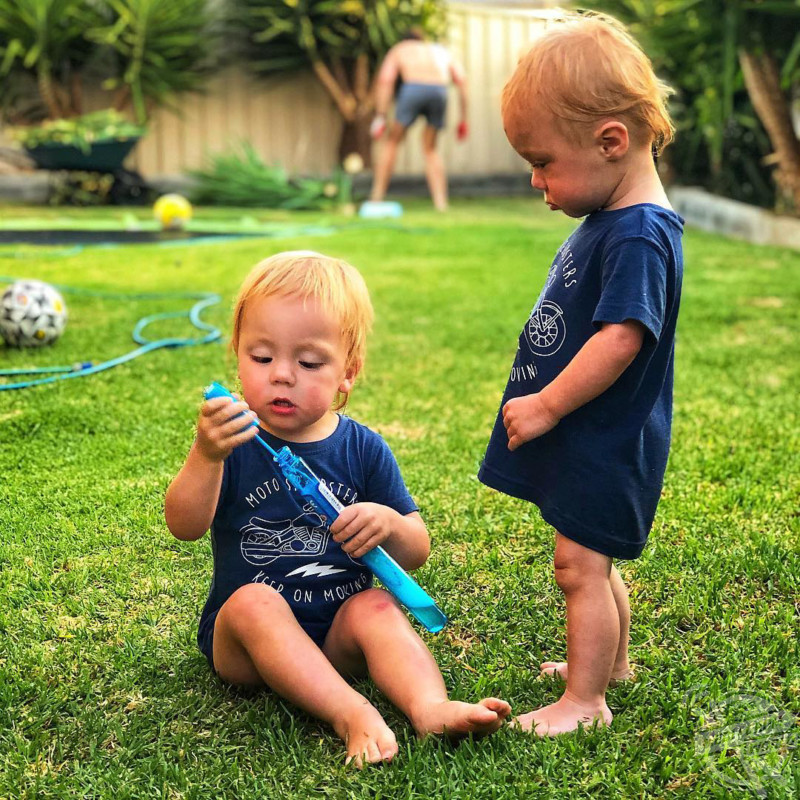
“The boys are doing great now; Kash is ahead for his age in terms of size and development. Sonny is lagging about six weeks behind Kash, so every time Kash does something new, Sonny does it roughly six weeks later.
“Sonny can have his pacemaker removed because he hasn’t ever needed to use it. He is gaining weight nicely too.
“First world country health care is incredible. There is a reason we have to pay taxes because the help is there when you need it.
“The health care we received was excellent, but at times we had to follow our instincts and make decisions we knew were best for our situation.
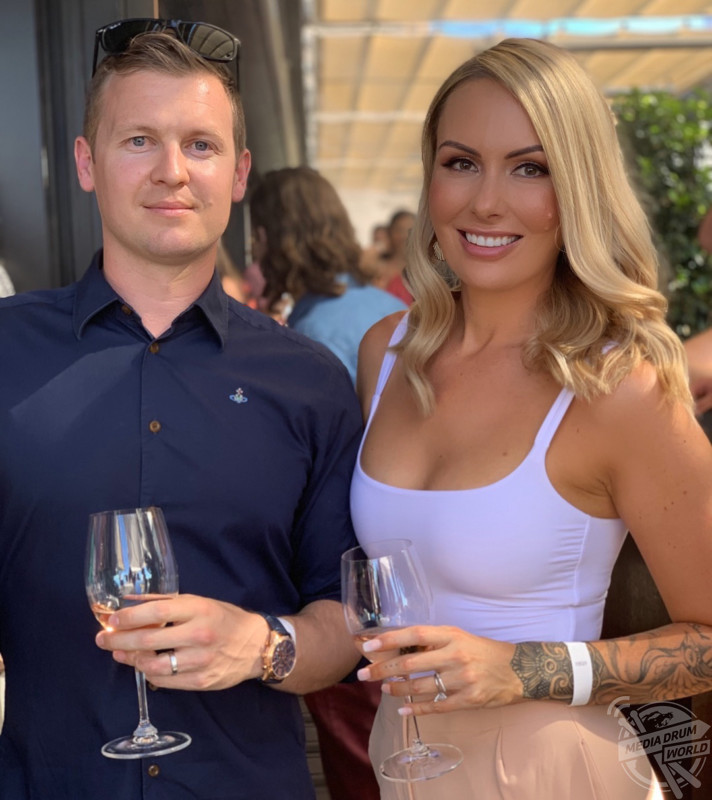
“When bad things were happening, we just took it one day at a time. Every day was just about getting through what presented itself on that day.
“Follow your gut instinct with things. There were so many instances when we had mixed information, so Renee and I went home and discussed things and then did what we felt was right.
“Don’t be afraid to get a second opinion and don’t be afraid to tell a doctor you think they’re wrong or if something doesn’t feel right.”
To see more of Sonny and Kash’s incredible journey, visit @daily_sonny_and_kash.

